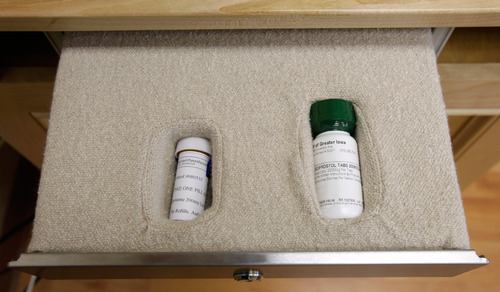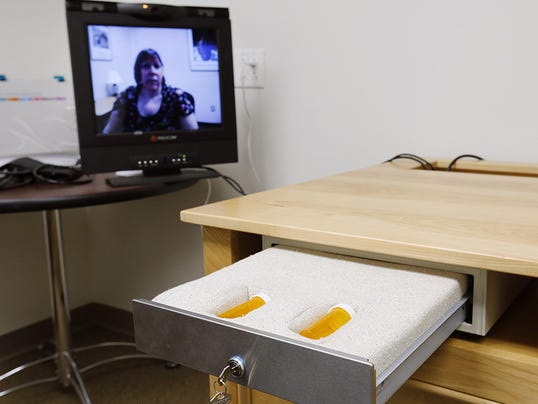The Iowa Supreme Court ruled Friday that doctors can keep using a telemedicine system to dispense abortion pills because it would pose an "undue burden" on a woman's right to abortion.
More than 7,200 Iowa women have used the Planned Parenthood of the Heartland system to obtain abortion-inducing pills since 2008. The system, the first of its kind in the nation, allows Planned Parenthood doctors in Des Moines or Iowa City to interact via video with patients in outlying clinics, then dispense the pills to the women.
State regulators, appointed by Iowa's governor who opposes abortion, ruled in 2013 that the system should effectively be banned because of purported safety concerns. The ban was put on hold while Planned Parenthood appealed in court. A district judge sided with the regulators in 2014, but the Supreme Court disagreed Friday.
The justices decided 6-0 that the Iowa Board of Medicine's rule violated women's rights under the state and federal constitutions. The court noted that telemedicine is being used to provide many other types of health care. But the medical board only focused on telemedicine's use for abortion when it imposed a requirement that doctors personally perform physical exams on patients, the justices wrote. "It is difficult to avoid the conclusion that the board's medical concerns about telemedicine are selectively limited to abortion."
 |
| And with my busy schedule making babies, ABORTION ON DEMAND is so, convenient |
The Supreme Court determined the medical board's rule imposed an unconstitutional "undue burden" on women's right to abortion. It noted that national standards do not require a physician to perform a physical examination on a woman before providing a medication abortion.
The court also noted that other staff members in the outlying Planned Parenthood clinics draw blood, take medical histories and perform sonograms on the patients, which are transmitted to the physicians. The justices wrote that they didn't see proof that an in-person exam by a doctor would "provide any measurable gain in patient safety."
The case is being watched nationally, because abortion providers in other states have considered setting up similar systems. This is believed to be the first time in more than 40 years that the state Supreme Court has considered an abortion case.Read the rest of the story HERE and view a related video below:
If you like what you see, please "Like" us on Facebook either here or here. Please follow us on Twitter here.




No comments:
Post a Comment